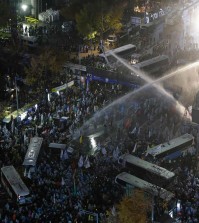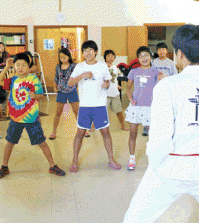- California Assembly OKs highest minimum wage in nation
- S. Korea unveils first graphic cigarette warnings
- US joins with South Korea, Japan in bid to deter North Korea
- LPGA golfer Chun In-gee finally back in action
- S. Korea won’t be top seed in final World Cup qualification round
- US men’s soccer misses 2nd straight Olympics
- US back on track in qualifying with 4-0 win over Guatemala
- High-intensity workout injuries spawn cottage industry
- CDC expands range of Zika mosquitoes into parts of Northeast
- Who knew? ‘The Walking Dead’ is helping families connect
[NPR] In Korea, Adoptees Fight To Change Culture That Sent Them Overseas

Anais Bordier and Samantha Futerman, born in Busan in 1987 and adopted worlds apart three months later — Bordier by a Parisian family, Futerman by an American family from New Jersey — were reconnected through social media last year. Their tale will now be available in a book, “Separated @ Birth: A True Story of Twin Sisters Reunited,” to be released Oct. 30. (Published by Putnam Adult, Penguin Group)
[NPR] In the years after the Korean War, more than 160,000 Korean children — the population of a midsize American city — were sent to adoptive homes in the West. What began as a way to quietly remove mixed-race children who had been fathered by American servicemen soon gained momentum as children crowded the country’s orphanages amid grinding postwar poverty. Between 1980 and 1989 alone, more than 65,000 Korean children were sent overseas.
For the first time in South Korean history, the country’s adoption law has been rewritten by some of the very people who have lived its consequences. A law alone can’t undo deeply held cultural beliefs, and even among adoptees, opinion is divided over how well the SAL’s effects match its aims. The question of how to reckon with this fraught legacy remains unsettled and raw. [READ]
















